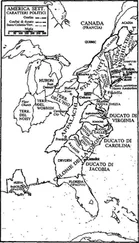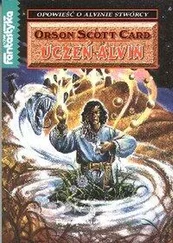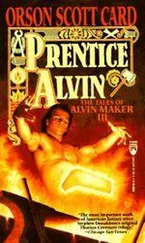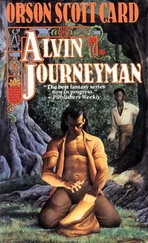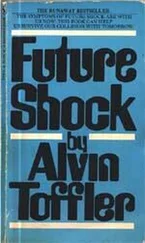Alvin Townley
DEFIANT
The POWs Who Endured Vietnam’s Most Infamous Prison, the Women Who Fought for Them, and the One Who Never Returned
To the men of the Fourth Allied POW Wing and to the families who never forgot
It matters not how strait the gate,
How charged with punishments the scroll,
I am the master of my fate:
I am the captain of my soul.
—“Invictus,” William Ernest Henley
He could not forget the beetle, how it stopped moving, how it rolled onto its back, dead, its stiff legs pointed to the plaster ceiling, where a single burning bulb and a meat hook hung. By now, he knew the hook wasn’t intended for meat. Instead, it gave leverage to the ropes that forced him to talk, to sign confessions, to compromise the Code.
Some of the ants crawling across his own beaten and prostrate body soon began marching down to the floor and toward the dead beetle. He watched them—just inches from his face—as they bored holes through its shell, devouring it. Soon a column of the tiny scavengers formed and carried the carcass away to an unknown grave in this godforsaken prison.
After two years of interrogations, torture, and isolation, he felt just like the beetle. He lived in the same filth as the insects and vermin that inhabited the floor of Room Nineteen. He could still barely stand. The guard—Pigeye, the prisoners called him—had broken his knee again, rendering his left leg useless and leaving it twisted inward at a grotesque angle. Three weeks ago, they’d hauled him off the tile floor that he’d shared with the beetle and shoved him into a different cell. Now he spent the entire day wearing a tight blindfold across his eyes, hunched on the floor in his own waste. Mosquitoes and ants preyed freely upon him; he could fend off neither since tight iron cuffs bound his wrists behind his back. A guard removed the cuffs and blindfold once each day so he could eat the watery vegetable soup that barely sustained him. Sometimes the guards refastened the cuffs so tightly that the pain kept him from sleep, the one refuge from the horror of his imprisonment in North Vietnam. Jim Stockdale had no idea when or if this unbearable sentence would ever end, for him and for the other American pilots locked inside Hỏa Lò Prison, or, as they’d taken to calling it, the Hanoi Hilton.
The forty-three-year-old navy commander could still remember better days; they hadn’t yet taken his memories from him. He recalled being a young man and wanting more than anything to attend the United States Naval Academy; he remembered the pride of joining its Brigade of Midshipmen in 1943. Recollections of Annapolis, of flight training, of long deployments with good friends helped comfort him while he lay on that prison floor. He thought often of his family, of time at home in San Diego with his wife, Sybil, and their four boys, happily playing piano together before he deployed. Back then he had felt in control of his world. He provided for his family, ensured his sons were becoming strong young men, and, with confidence, watched his career progress toward admiral. At sea aboard the USS Oriskany, he’d felt a similar control over the men and planes in the air wing he commanded, the powerful jets he piloted, and nearly everything he surveyed from his cockpit.
He remembered flying imperiously over the paddies and jungles of North Vietnam, this nation of peasants who still farmed with oxen, who fought in sandals, and whose weaponry, he thought, would never down a pilot like him in an airplane like an A-4 Skyhawk. Yet they’d bagged him. He’d pulled out of a perfect low-level run over the rural district of Tĩnh Gia and watched his shower of explosives dance across a row of boxcars filled with supplies for Communist guerrillas in South Vietnam. Then he’d headed straight for the clouds. Before he could reach them, a string of 57 mm shells ripped into the Skyhawk’s starboard side. In the cockpit, he’d felt impervious to the dangers of battlefields below; the hits shattered that sense of invincibility.
The plane pitched down, and all control slipped away. Jim was yanked forward into his shoulder harness, then slammed back into the seat as the Skyhawk plummeted toward the ground. As he struggled with the controls, he spied the blue sea just 3 miles away. If he could hold the plane together for a few more seconds, he could reach the Gulf of Tonkin, where he’d eject and rescuers could fish him from the waves.
Instead, the Skyhawk continued its dive, which would inevitably end in a fiery crash. Jim had only seconds to escape. He tried in vain to lift his arms against the g-forces to reach the overhead ejection ring. With the ground growing larger in his windshield, he grasped the alternate ejection handle between his legs and pulled. The jet’s canopy shot off and the seat rocketed Jim out of the aircraft. He registered pain as he tumbled through the sky. By the time his parachute deployed, he knew he’d been injured, but he couldn’t process it. Only seconds separated him from the ground, and he spent them hoping that the bullets slicing away at his parachute would miss his helpless body. The chute drifted closer to the trees, and its canopy snagged a limb, leaving him suspended just above the main thoroughfare in a small village. Still hanging in his harness, he watched as a mob of townspeople began running toward him.
He released the latches on his harness and dropped onto the muddy street. A surge of villagers knocked him down and began pummeling him with fists, clubs, or whatever they had, hitting wherever they found an opening. Someone knocked him hard on the head. Above the din, he could hear a distant whistle—a police officer, salvation from the relentless bludgeoning. The crowd stepped back, still encircling him menacingly. Under direction from the constable, several boys stepped forward and began cutting away Jim’s clothes—his flight suit, his T-shirt, the red polka-dot boxers Sybil had bought him during his last shore leave. The officer pointed at Jim’s leg, and for the first time, he looked at his body. The ejection had completely shattered his left knee; the leg was now bent 60 degrees to the side. He tried to move his left arm; it didn’t respond. Jim had forgotten to grab his right wrist with his left hand as he pulled the ejection lever. Consequently, his left arm had flailed freely during his exit from the cockpit, doing untold damage to his shoulder, which seemed dislocated if not shattered. He thought the force of the exit had also broken his back.
He heard jets overhead, and his spirits momentarily rose. Then he saw villagers concealing the parachute that would have caught their attention or at least indicated that Jim had landed safely. Now, nobody would know if he had survived—not his wingmen, not his squadron, not his government, not his wife, not his four boys. Nobody.
As the mob dragged Jim through the street—naked, bloodied, crippled, and humiliated—he steeled himself for what would come. He knew it would get much worse.
Still, he’d never imagined anything as horrible as the floor of this cell. Nearly eight hundred days had passed since he’d involuntarily parachuted into North Vietnam, and he saw no prospect of release. He wondered if he would exist like this, a maimed, blinded animal, for the rest of his life.
Читать дальше




